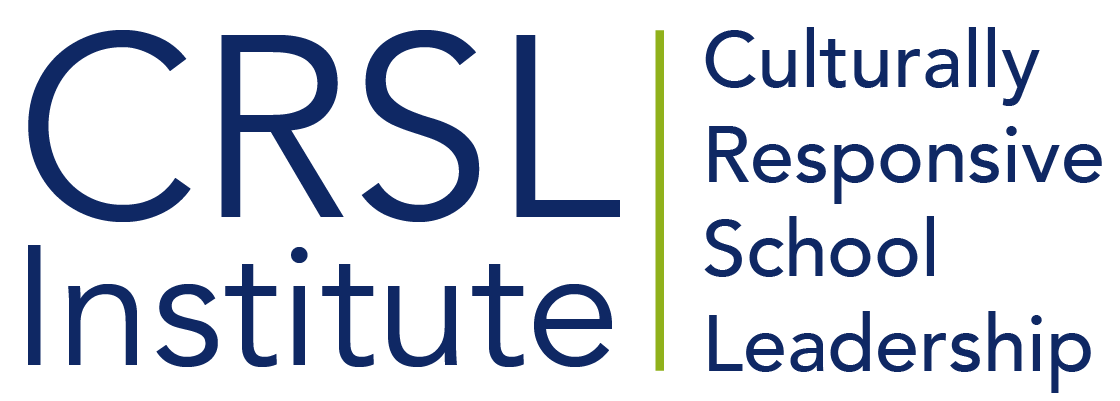Nov 1
Holding Space: Supporting the Sustainability of Black Women School Leaders

Black women school leaders often face unique challenges due to systemic issues like racial battle fatigue and workplace stress. Dr. Racquel Armstrong’s research highlights the necessity of supporting their well-being through self-care strategies tailored to their specific needs. In this blog post, we will explore key insights from her work, emphasizing actionable steps that can sustain Black women in educational leadership roles.
Empty space, drag to resize
The Unique Challenges Facing Black Women Leaders
Black women in leadership positions often find themselves hyper-visible yet invisible. They are frequently the sole representatives of their communities in predominantly White or suburban districts, where their voices may not be fully acknowledged.
In our recent episode of Equity Unlocked, Dr. Armstrong shared the following:
In our recent episode of Equity Unlocked, Dr. Armstrong shared the following:
“Black women leaders are both hyper-visible and invisible at the same time. What I mean by that is when you think about Black women leaders, especially in school districts that are either suburban or (where) demographics are changing, they often are one of a few- and being one of a few, their visibility is very real in those spaces. But at the same time, the voices, their experiences, the embodied knowledge of the communities that they come from aren't always recognized in those places.”
Systemic Pressures and Health Implications
Research supports the claim that Black women school leaders face disproportionately high levels of stress, contributing to a higher likelihood of leaving the field and chronic health issues. A report from RAND Corporation highlights that Black educators are particularly likely to leave due to job-related stress, which is exacerbated by systemic barriers and lack of support. In fact, Black teachers are almost twice as likely as others to experience frequent job-related stress and three times as likely to experience symptoms of depression (RAND).
These statistics indicate that the current systems in place are not conducive to the longevity of Black women in leadership.
These statistics indicate that the current systems in place are not conducive to the longevity of Black women in leadership.
Frameworks for Self-Care
Dr. Armstrong integrates Black Feminist Theory and the Superwoman Schema to frame her research.
Black Feminist Theory is a framework that examines the intersections of race, gender, and class, focusing on the unique experiences of Black women. This theory emerged as a response to the marginalization of Black women in both feminist movements (which often centered on the experiences of White women) and Black liberation movements (which often centered on the experiences of Black men). Black feminist theory addresses how systemic oppression shapes the lived experiences of Black women, emphasizing the need for a specific analysis of their struggles.
Black Feminist Theory emphasizes self-definition and the critical role Black women play as educators and leaders, while the Superwoman Schema identifies the societal pressures that push Black women to present an image of strength while suppressing vulnerability. These frameworks guide how self-care should be approached for Black women in leadership roles.
The "Superwoman Schema" was developed by psychologist Dr. Cheryl Woods-Giscombé, and it explores the psychological framework surrounding the experiences of Black women. This concept centers on the pressures many Black women face to exhibit strength, suppress emotions, and succeed despite adversity. Woods-Giscombé’s work examines how societal expectations of being resilient, nurturing, and self-reliant can lead to significant emotional, mental, and physical health costs.
Practical Strategies for Sustainability
Dr. Armstrong proposes several practical strategies for sustainability:
- Boundary-Making: Leaders need to actively create boundaries, such as setting clear working hours and prioritizing personal time.
- Community Support: Building networks with other Black women leaders fosters a space for shared experiences and emotional support.
- Health Awareness: Listening to one's body and prioritizing health can prevent stress from leading to chronic illness.
- Holistic Self-Care Plans: Leaders should create 90-day self-care plans, much like they would for professional goals. This plan should include identifying personal needs, potential barriers, and activities that replenish energy.
In conclusion, the sustainability of Black women in educational leadership requires more than just personal empowerment—it demands systemic change. Dr. Armstrong’s research highlights that while self-care, boundary-setting, and community support are crucial, they cannot be solely the responsibility of individual leaders. True longevity in leadership roles comes when institutions implement systemic reforms that support the well-being of Black women leaders, allowing them to thrive without having to shoulder the burden of self-care alone.
For more resources and information on supporting Black educators, explore our EQUITYx series.
Follow us on social
Empty space, drag to resize
Where we are
1041 Grand Ave Box #276
St. Paul, MN 55105
612.584.9478
info@crsli.org
St. Paul, MN 55105
612.584.9478
info@crsli.org
Featured links
Policy Pages
Connect with us
Subscribe to our email list
Thank you!
Copyright © 2025
Empty space, drag to resize

Empty space, drag to resize
Muhammad Khalifa, PhD
President and CEO
Dr. Muhammad Khalifa is a professor of educational administration and Executive Director for Urban Education Initiatives at the Ohio State University. Before coming to OSU, Dr. Khalifa held the Robert Beck Endowed Professorship in the Department of Organizational Leadership, Policy, and Development at the University of Minnesota, Twin Cities. Having worked as a public school teacher and administrator in Detroit, Dr. Khalifa's research examines how urban school leaders enact culturally responsive leadership practices. His latest book, Culturally Responsive School Leadership (2018) was published by Harvard Education Press. He has led equity audits in U.S. schools as a way to reduce achievement and discipline gaps, and he is the first to develop and use online Equity Audits for schools. In addition to his urban work in the U.S., Dr. Khalifa has engaged in school leadership reform in African and Asian countries, including a recent U.N. project in East Africa.
Empty space, drag to resize
Empty space, drag to resize

Empty space, drag to resize
Darlinda Anderson
Senior Vice President
Darlinda Anderson serves as the senior vice president of Ajusted Equity Solutions/CRSLI. Her role within the organization is to charter leadership, organizational objectives, sustainable strategy, and advantageous expansion. For the last twenty years, she has worked in human resource management, K–12 education, and process-led project management. Overall, Darlinda’s passion for balance and equity in the service of societal disparities—especially those in disadvantaged groups and professions—was the start of her overarching search for finding and supporting an organization that creates long-term sustainable opportunity for disadvantaged minorities.
Because of her passion for systems and organizational development, after graduating from Purdue University, Darlinda went to work for Hewitt Associates, a global leader in human resources outsourcing and programmatic financial services. This was her segue into the fields of project management, education, interactive broadcast media, and marketing. Though she initially started in business within the healthcare sector, it allowed her to realize how deeply she loved working in the service of others and for an equitable cause. This was the beginning of her journey to earning her master's in educational leadership. As her multiple career paths progressed, Darlinda searched for an opportunity to serve with the US government agency Americorps. There, she completed her educational service through Teach for America. Darlinda continued to serve as a K–12 public education teacher after her initial service to Americorps ended for another ten plus years.
As a classroom teacher, Darlinda saw firsthand all the struggles that Title I schools faced. After becoming a department chair, she began studying full-time to earn her master’s of business administration in human resource management. She continued to seek out opportunities beyond the classroom, where she knew she’d be closer to influencing systematic and district-level change. She continued navigating impactful roles that affected internal shifts, which led to working as a district program manager for a few years and later leading as a director of programs over the span of the next few years in educational organizations across the country. Today, her overall goal is to continue to serve, cultivate, and create world-changing avenues that make far-reaching equitable ideals a reality.
Empty space, drag to resize
Empty space, drag to resize

Empty space, drag to resize
Empty space, drag to resize
Jessica Schrody
Marketing Administrative Specialist
Jessica Schrody, born and raised in Los Angeles, California, is a professional with a passion for digital storytelling and online marketing since 2017. Focused on social media, she crafts engaging narratives that captivate audiences and drive business success.
Beyond her digital expertise, Jessica has a solid background in customer service and a talent for high-ticket, high-volume sales. Her commitment to excellence and dynamic range of skills make her a valuable asset who routinely contributes to the company’s growth.
Empty space, drag to resize
Empty space, drag to resize

Empty space, drag to resize
Katie Pekel, EdD
Co-Director CRSLA
Dr. Katie Pekel, is the Principal in Residence for the University of Minnesota. In this role Dr. Pekel serves as the department’s direct connection between the fields of research and practice in PK-12 education. She leads the Minnesota Principals Academy, co-directs the Urban Leadership Academy, developed the University’s District Leadership Academy with Dr. Kim Gibbons and the Culturally Responsive School Leadership Academy with colleague Dr. Muhammad Khalifa. Dr. Pekel also serves as a graduate coordinator or the Educational Policy and Leadership track within the Department of Organizational Leadership, Policy and Development. She teaches courses for aspiring school principals and doctoral students and coordinates the Executive PhD cohort for educational leaders. Dr. Pekel has also worked with the University’s College Readiness Consortium guiding school principals and leadership teams from over 150 schools across Minnesota on their implementation of Ramp-Up to Readiness™, the University’s school-wide college readiness program for students in grades 6-12. Dr. Pekel has served at all levels of K-12 education first as a high school English teacher, as an elementary principal and most recently as a middle school principal for six years in Austin, MN.
Empty space, drag to resize
Empty space, drag to resize

Empty space, drag to resize
Maggie Smith-Peterson, PhD
Director of Instructional Design & Learning
Maggie Smith-Peterson is the Director of Instructional Design & Learning for the Culturally Responsive School Leadership Institute and leads projects focused on the creation and expansion of learning experiences, services and tools for developing socially just and racially equitable leaders and school systems. Maggie has served as an elementary classroom teacher, specialist/coach, adjunct professor, district program facilitator, and professional learning designer in a variety of school systems and organizations, including New York City Public Schools, St. Paul Public Schools, Minneapolis Public Schools, the University of Minnesota, and the University of St. Thomas. Maggie holds an M.S. and an M.A. in education, and received her Ph.D. in Curriculum and Instruction from the University of Minnesota. As a scholar, she studies social justice issues in gifted education and advanced academics with a particular focus on the history of scientific racism and its implications for structural reproduction. As a designer, Maggie specializes in visual and multimedia design, UX/LX research and design, and learning technologies.
Empty space, drag to resize
Empty space, drag to resize

Empty space, drag to resize
Noor Doukmak, PhD
Director of Operations & Community Partnerships
Noor Doukmak is the Director of Operations & Community Partnerships at the Culturally Responsive School Leadership Institute. She channels her passion for educational equity and excellence into creating research-based content for practitioners, collaborating with school and district leaders to support their equity initiatives, and facilitating smooth operations across CRSLI’s projects.
Noor leverages her diverse background as a high school math educator, university instructor, editorial assistant, and education researcher. She earned her PhD in Education Policy, Organization and Leadership from the University of Illinois Urbana-Champaign, where her research focused on community-organized education.
Empty space, drag to resize
Empty space, drag to resize

Empty space, drag to resize
Course 1: Historical & Community-Based Epistemology
The first course in ATA SY25 series delves into historical continuities and community-based perspectives that are often invisibilized in our systems, practices, and ways of working in educational contexts. Through this course, leadership teams establish foundational knowledge and skills to visibilize historical discourses and cultural blindspots operating in our schools today.
Empty space, drag to resize
Sessions:
-
Session 1 - Colonial Discourses: Analyze the historical continuities of deficitizing beliefs about minoritized students and families by examining colonial discourses.
-
Session 2 - Historicizing Community Context: Historicize the conditions and events that have impacted your school system's minoritized communities over time.
-
Session 3 - Understanding Epistemology: Define epistemology and visibilize its variances within both dominant and minoritized communities and cultures.
-
Session 4 - Community-based vs. School-centric Epistemology: Differentiate between school-centric and community-based epistemologies.
Empty space, drag to resize
Empty space, drag to resize

Empty space, drag to resize
Course 2: Leadership for Critical Reflection
Critical reflection is a cornerstone of culturally responsive school leadership. Yet too often, critical reflection fails to transcend the personal level and lead to effective, ethical action. In this course, leadership teams will not only learn to develop and lead personal critical self-reflection practices, but also to expand leadership of critical reflection to the systems-level by incorporating community, interrogating structures, and institutionalizing practices.
Empty space, drag to resize
Sessions:
-
Session 1 - Developing a Personal Critical Reflection Practice: Recognize and self-assess the essential leadership skills for personal critical self-reflection.
-
Session 2 - Leading Dynamic Critical Reflection: Engage critical reflection beyond the personal level by examining the structures, practices, experiences, and content used in school(s).
-
Session 3 - Leading Community-Centered Critical Reflection: Implement a plan to include the perspectives of minoritized students, families, and communities in leadership of critical reflection.
-
Session 4 - Institutionalizing Critical Reflection: Develop a roadmap for embedding critical reflection dynamically across your system, among multiple stakeholders, and over time.
Empty space, drag to resize
Empty space, drag to resize

Empty space, drag to resize
Course 3: Leading Inclusive Schools
Many of the seemingly intractable racial disparities in discipline and academics that we see nationwide are a result of exclusionary practices that marginalize minoritized students' ways of knowing and being. In this course, you will learn to recognize and challenge the exclusionary school practices that tend to be directed at minoritized students. You'll interrogate restorative disciplinary models and develop a culturally responsive approach to student behavior. And you'll learn how to mentor teachers and model inclusionary practices to foster an environment where all students feel seen, safe, and excited to learn.
Empty space, drag to resize
Sessions:
-
Session 1 - Inclusionary vs. Exclusionary Practices: Identify and differentiate between exclusionary and inclusionary practices.
-
Session 2 - Challenging Exclusionary Practices: Use mentoring and modeling to transition educators out of exclusionary practices and into inclusionary responses to student behaviors.
-
Session 3 - Restorative Discipline: Critique common disciplinary frameworks by identifying the ways in which they fail to disrupt exclusionary practices.
-
Session 4 - Community-Based Behavior Modification: Synthesize understandings of inclusionary practices by developing a framework for community-based behavior modification.
Empty space, drag to resize
Empty space, drag to resize

Empty space, drag to resize
Course 4: Humanizing Student Identity
In order for our schools to be truly welcoming and supportive of minoritized children and youth, we must create intentional spaces in which they can show up as their authentic, cultural selves. This requires that culturally responsive school leaders develop deep understandings of and respect for local minoritized community cultures. In this final course of the SY25 ATA series, leaders will not only learn how to humanize minoritized students’ cultural ways of knowing and being, but also to create systems and structures that transform teaching, learning and community engagement.
Empty space, drag to resize
Sessions:
-
Session 1 - Visibilizing Dehumanization: Understand community-based identities and visibilize practices that dehumanize them.
-
Session 2 - Developing Social Capital Networks: Establish social capital networks that leverage school resources and staff to empower parents and cultivate relationships.
-
Session 3 - Centering Students' Cultural Capital: Create a plan to allow teachers and other school staff to identify and use minoritized students' cultural capital.
-
Session 4 - Leading Humanizing Schools: Systematize approaches to harnessing cultural and social capital to resolve equity issues in schools.
Empty space, drag to resize
Enroll in After the Academy
Please complete the following form. After submitting a member of our team will reach out to you with next steps within 1-3 business days.
